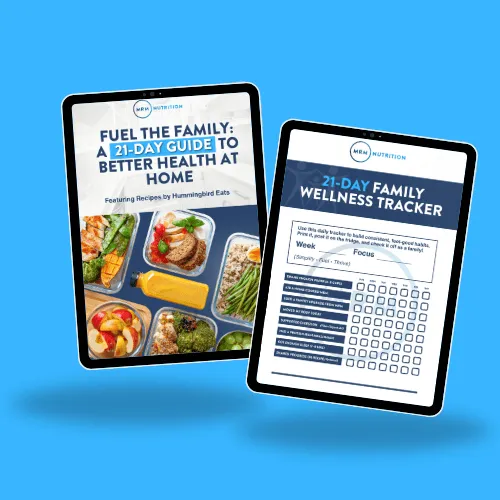Crohn’s and Colitis 101: Awareness Week December 1st – 7th
December 1st-7th marks Crohn’s and Colitis Awareness Week. This year, we are joining forces with our friend Cory Greenberg, a professional cyclist living with Ulcerative Colitis (UC), to raise awareness for these inflammatory bowel disease states. This week was created to express appreciation and support to family members and caregivers of those living with Crohn’s and UC while also raising awareness to see a future free of Crohn’s and Colitis.
What is the difference between Crohn’s and Colitis?
Crohn’s disease is an inflammatory bowel disease that causes chronic inflammation in the gastrointestinal (GI) tract. It can occur at any age, but most commonly affects those between 20-30 years old. The disease itself can affect any part of the gastrointestinal tract and can affect the entire thickness of the bowel wall. The ileum, the last section of the small intestine, is the most commonly affected area for Crohn’s patients and displays “patchy” sections of inflammation.
Colitis is another inflammatory bowel disease that specifically affects the whole colon (large intestine), specifically the innermost lining of the colon. People living with colitis usually have inflammation of the whole colon compared to the patchy-type inflammation of Crohn’s.
What are some common symptoms?
There is an inverse relationship between inflammation and nutrient absorption in the GI tract. As inflammation increases across the intestinal tract, the ability of your body to properly absorb nutrients and water decreases. Ultimately, this causes malabsorption and consequently loose stool.
Crampy abdominal pain and urgent bowel movements are two of the most common symptoms related to Crohn’s and Colitis. Because these diseases are so individual, the symptoms can vary from person to person. Other known symptoms are weight loss, fatigue, anemia, and loss of appetite. Some people experience “flare-ups”, where symptoms are more extreme than normal or symptom-free “remission” phases.
Now that we’ve covered some of the basics, let’s check out how a couple of our #MRMFamily members, Cory and Cami, deal with IBD on a day to day basis.
“As an endurance athlete living with Ulcerative Colitis, a form of Inflammatory Bowel Disease, gut health has become the center of my life. Like the millions of IBD patients worldwide, this condition has sought to dictate our way of life on a daily basis. But for myself, I have always been a fighter and one that has pushed back against my diagnoses to follow my dreams of being a professional cyclist. In order for me to balance both the stresses of a professional cycling career and living with IBD, I have to support my body with the fuel and nutrients it needs. That’s why I use amazing products like Extra Strength Probiotics and Digest All from MRM Nutrition. These products are some of the many from MRM that I use to help me create a balanced approach to my health and give my body the extra support it needs so I can maintain my IBD and focus on crossing the finish line first.” –Cory Greenberg
"My name is Cami Glosz and I’m a Registered Dietitian based in San Diego, CA. I was diagnosed with ulcerative colitis (UC) in 2013 after experiencing quite a few unpleasant digestive issues throughout the previous year. Since then, I’ve cycled on and off various diets and medications, but the three things that I think help the most to keep my GI tract happy are taking probiotics, using digestive enzymes with meals (Digest-All is my fave), and keeping my stress levels low! Stress, anxiety, and lack of sleep are big triggers for my UC flares, so I try to get plenty of rest and I meditate regularly to keep my stress levels under control. However, everyone with IBD is so incredibly different in terms of what causes symptoms and what doesn’t, so it definitely takes some trial and error to find things that work for you as an individual.” –Cami Golsz
If you struggle with IBD, you are not alone. Crohn’s and Colitis Week (Dec 1-7th) is about raising awareness for those living with IBD and providing resources to those who want to learn more. Follow us on Instagram and check out what’s happening this week with the Crohn’s and Colitis Foundation!
* These statements have not been evaluated by the food and drug administration. This product is not intended to diagnose, treat, cure, or prevent any disease.


